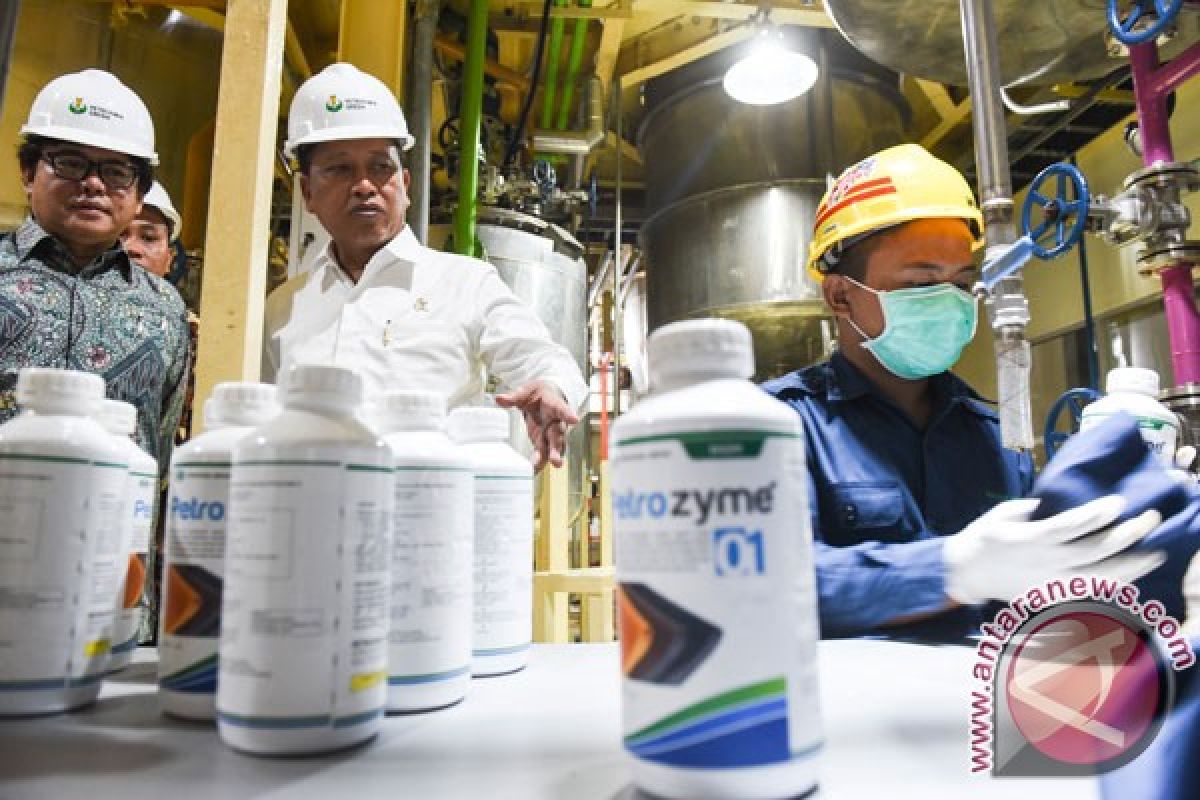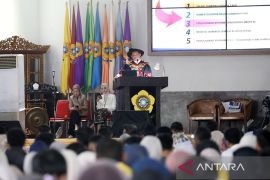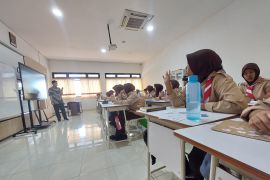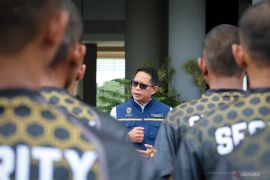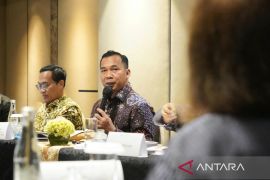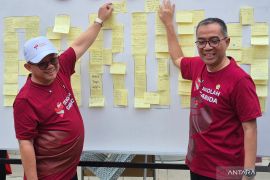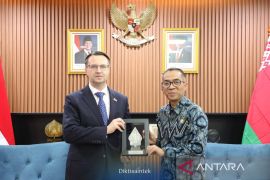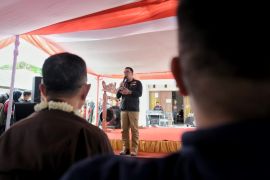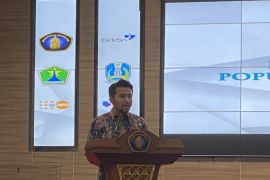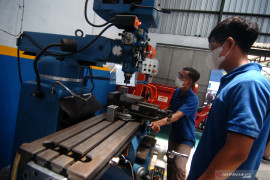The government is not only concentrating on physical infrastructure but is also serious about the development of human resources in terms of skills and knowledge.
President Joko Widodo (Jokowi) has also stated that starting next year, the government will concentrate more on human resource development.
In 2017, the government was concentrating on infrastructure development as it serves as a foundation for Indonesia to compete with other countries. That is why a big part of the budget was invested in this sector, noted the President.
To become a developed country, the president pointed out, the government cannot rely on natural resources such as coal, forest products, and minerals because the key to further growth is human resources, and if human resources can be optimized with adequate skills, it can then become the capital to compete with other countries.
The President said that human resource development is vital to Indonesia`s ability to compete with other countries. Indonesia has a large human resource with a population of about 250 million, of which 60 percent is productive young people.
"By 2040 it is estimated that the number of productive people will reach 95 million, and this could be a major force," the President stressed in Bekasi, West Java, recently.
According to the President, this large human resource is Indonesia`s wealth and an opportunity for it to compete and win against other countries.
"If we can take advantage of our human resource, then we can be a winning nation," the President reiterated.
President Jokowi has repeatedly stressed that the government was not only undertaking the development of physical infrastructure but also that off human resources, realizing that many countries have been able to develop themselves due to the capacity and skill of their human resources.
"Do not think that we only build physical infrastructure; human resource development is also important," Jokowi remarked while giving a public lecture at the Muhammadiyah University of Jember, in East Java, last August.
The president called for the resolution of the present inter-regional disparities in the western, central, and eastern part of the country.
By solving the various problems and inequalities, Indonesia can compete with the other countries through the development of infrastructure and human resources.
Jokowi noted that infrastructure was the basic necessity, and hence, the government was pursuing the construction of toll roads, ports, airports, power plants, and others such works.
Infrastructure is important for Indonesia to be competitive in terms of development. When this is almost done, the country will enter into the second phase, namely the development of human resources.
If these two phases are completed, the government will then enter the third phase, that of investing in industries, services, and information technology. This phase will be easier because the foundation has already been laid.
President Jokowi had stated earlier that these three phases of national development will be needed to realize the vision of Indonesia 2045.
The implementation of the three stages of development will be carried out in three 10-year periods, he said during a speech at the 16th National Working Meeting of Indonesian Young Entrepreneurs.
Infrastructure development, which serves as the foundation for other developmental stages, will be carried out in the initial 10 years. This will boost the country`s competitive power.
"We must really focus and complete this first stage of infrastructure development in order to strengthen our competitiveness. The cost of logistics and transportation will be much cheaper and will make the prices of goods competitive as compared to products from abroad," he revealed.
Several development projects are currently being carried out by the government, including those in the areas of electricity infrastructure, toll roads, airports, and also seaports, which are being sped up.
The seaport development projects are being carried out in three stages. They include the Kuala Tanjung, the Makassar New Port, and the Tanjung Priok. "This year, we will start with the port in Sorong, West Papua. Without these ports, it would be impossible for us to be competitive in the current era of openness," the President reiterated
The President has expressed the hope that such projects would also improve the development of human resources.
Besides the President, the Coordinating Human Development and Culture Minister Puan Maharani has also stated that the quality of human resources will determine Indonesia`s competitiveness in the era of globalization.
"Competition in the era of globalization will be determined by the quality of human resources in managing the potential of the nation and the country," Maharani stated.
There are three strategic agendas needed to develop the potential of the Indonesian people, according to minister.
The agendas are to ensure the fulfillment of basic needs, improve the human capability of Indonesia, and build the national character.
Maharani urged the younger generation to understand the challenges and take advantage of the opportunities.
The minister also underlined the importance of mutual cooperation in building the nation`s character.
"The national movement of the mental revolution is one of the strategic development agendas that has been initiated in an effort to build the national character," the minister pointed out.
The progress in universities can be seen from the work among the academic community in building the culture of anti-plagiarism, anti-narcotics, as well as a scientific culture that works for the welfare of the people, she stressed.
All parties should be involved in realizing the goals of the nation by improving the quality of human resources so as to encourage equitable development across Indonesia, she emphasized.
(O001/INE/B003)
Edited by INE
(T.O001/A/KR-BSR/B003)
Reporter: Otniel Tamindael
Editor: Heru Purwanto
Copyright © ANTARA 2017
